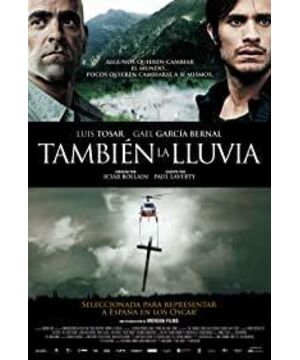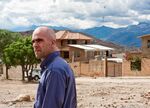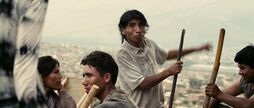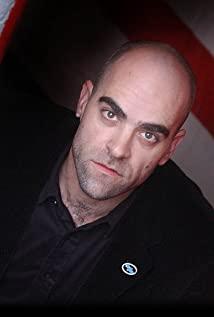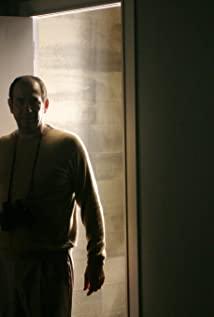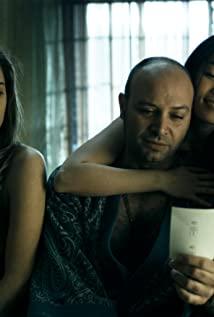After reading Galeano's "The Severed Vessels in Latin America", I feel that Europeans have cut open the passage of this continent; after reading "The Five Suns of Mexico" by Carlos Fuentes, I feel that Europeans have Continue to brutally dissect Latin America's torso, too brutal. After reading "Rain Crisis", I have a feeling that Europeans have reached their limit and are ready to eat Latinos, but they are stubbornly resisted. This line is similar to the colonization route and the trajectory of the ebb tide of the late Spanish Empire.
The protagonist's name is also very interesting. Costa, which means coast in Spanish, is vaguely related to the Columbus expedition, and of course the statement in front of the cross sets off this point of view; Sebastian, San Sebastian's film festival is world-famous , This young man also has the same dream, which is almost destroyed by reality in the end. Whether it can be realized in the end is unknown, but his mind has been sublimated. This is the extra power that art instills, and this Duras or Carver-esque ending once again shows the director's uniqueness.
Some things are beyond the realm of art. For example, Sebastian asked women and children to cooperate with the filming of a drowning scene by the river, only to hear the cry of the children and the cold eyes of the women, and Daniel's sentence "Some things are more important than your movie." In fact, Sebastian didn't fully understand this sentence, otherwise, how could he argue with Costa at the end not to rescue Daniel's daughter. Costa realized this. It should have started when he gave Daniel 10,000 yuan and asked him to cooperate with the filming to stop making trouble, but he saw Daniel being arrested by the police on TV the next day: this was a strong psychological impact, And Costa changed himself, changed Sebastian.
The beginning of the film gives the cross a long time, which is meaningful. The shouts of "Up, up" continued, and in the end, Costa and Sebastian really went up; and the others who fled timidly were still like those living in Antoinette's "bread and cake" in a dream. They failed to wash away the dust and sins of the Columbus era, and failed to complete their self-redemption before Jesus: this is the thinking of modern Spain, a former colonial country left to posterity.
The two shots before the end of the movie are meaningful. Costa found two pieces of paper in Daniel's workshop, one of which was Poussin's famous painting "Massacre of Babies". This shot should be aimed at the accusation that the government massacred a 17-year-old boy during the water crisis in Cochabamba. Moreover, in Poussin's painting, the last person who stopped the slaughter of the baby was a woman, which just happened to correspond to the scene of the initial riot in Cochabamba, where the women confronted the police with live ammunition; of course, it also echoed the scene of saving Daniel's women. , when Costa picked up the painting, he had completed his mission to stop the slaughter of babies, and before that he had completed the redemption of his soul, because he chose to stay. The second piece of paper is the report of the Bilbao media "El Correo". The political propaganda function of this newspaper is still relatively strong. The capital media such as "Herald" or "ABC" may also be alluding to the turbulent crisis in Spain. At that time, the power of ETA shook the entire Basque Country and even Spain.
As a female director in a once-colonial country, it is not easy to be able to use such a sinful mental technique to make a movie. Of course, the premise is that she must pursue freedom and advocate the moral law in her heart. One inference is that the fruits of Latin America’s explosive literary period influenced the demands of this group of Spanish directors and writers (apparently including the writings of Bartolome de Las Casas), who were willing to reflect on the actions of their predecessors, using Such literary and artistic achievements come to ask for sin and forgiveness. I don't know whether our country can produce such a director and such a powerful film, at least we do not have two prerequisites: reflection on history and introspection on the heart.
For that drop of water, for the memory of oblivion.
View more about Even the Rain reviews


